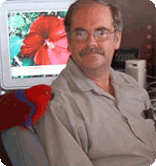Male Eclectus losing a lot of feathers from his upper breast

My male Eclectus is losing a lot of feathers from his upper breast region and they appear to be a greyish colour underneath, could he be “moulting” or could there be a more serious problem?

Hello Stephen,
Birds don’t naturally molt of sections of feathers. They molt feathers in a way that they will still be protected and able to fly. For an Eclectus Parrot the grey down feathers are normal and should be there. There could be numerous reasons why this is happening. Some more information would be helpful. How old is your bird? Is he caged with a mate or other bird? Is your bird kept indoors at all times or does he get outside? What sort of diet is he on? Has he been looked at by a avian veterinarian? Is he kept in a very dry area? Does he have a lot of toys to play with and things to keep his mind occupied?
Nutrition is of utmost importance, so a good diet consisting of a mix of a formulated diet with vegetables, fruits, and some nuts is a good place to start. Raw nuts are the best choice. Stay away from nuts with salt on them. There are very few nuts in the shell Eclectus Parrots can get into. I use almonds with mine. I recommend staying away from peanuts. There are a lot of fungal issues with peanuts. I also partially crack other nuts like hazel nuts, and brazil nuts. They can work their way into them if they are pre-cracked. Parrots also need minimal and regualr exposure to direct sunlight (shaded areas are fine). All windows filter out at least part of the sun’s rays. You can use full spectrum lights, but there is no replacement for natural sunlight, and full spectrum lights need to be replaced often.
The problem could be caused by feather mites. An avian veterinarian should be able to resolve that easily after examination.
Since most parrots come from tropical to sub tropical climates proper humidity is important. Dry skin can cause them to pluck. This seems to occur more in dry winter months than in the warmer more humid months.
If your bird is caged with another bird the other bird could be over preening the male Eclectus. This is not at all uncommon with captive birds caged together. This is easily resolved by caging the birds separately.
Heavy metal toxicity such as lead or zinc can cause feather picking. You will normally see nuerological symptoms and/or blood in the stool with heavy metal toxicity. If you are observing either your bird needs to be seen by a qualified avian veterinarian.
Unfortunately feather plucking is rather common with Eclectus Parrots. In my experience males seem to pluck more than females. The chest area and on their back between the shoulders seem to be their favorite places as well as the legs. I have seen self-mutilation of the legs in Solomon’s Island Eclectus to the point that they pull the tissue off of their legs. In most cases there is no apparent reason, but any of the above can cause it. I can say that in my experiences I have seen healthy Eclectus Parrots with proper husbandry grow out of their feather picking behavior with age, but some of them don’t.
If your bird is caged alone (ruling out over preening from another bird) regardless of the origin you need to start eliminating causes. The best place to start is an examination by a qualified avian veterinarian. They will be able to physically examine your bird and make recommendations on where start.
This can be very frustrating, and sometimes there is no reason (other than behavioral/psychological/hormonal problems) or cure. It’s probably one of the most difficult challenges of owning a captive bird.
I wish you the best of luck,
Glenn

































